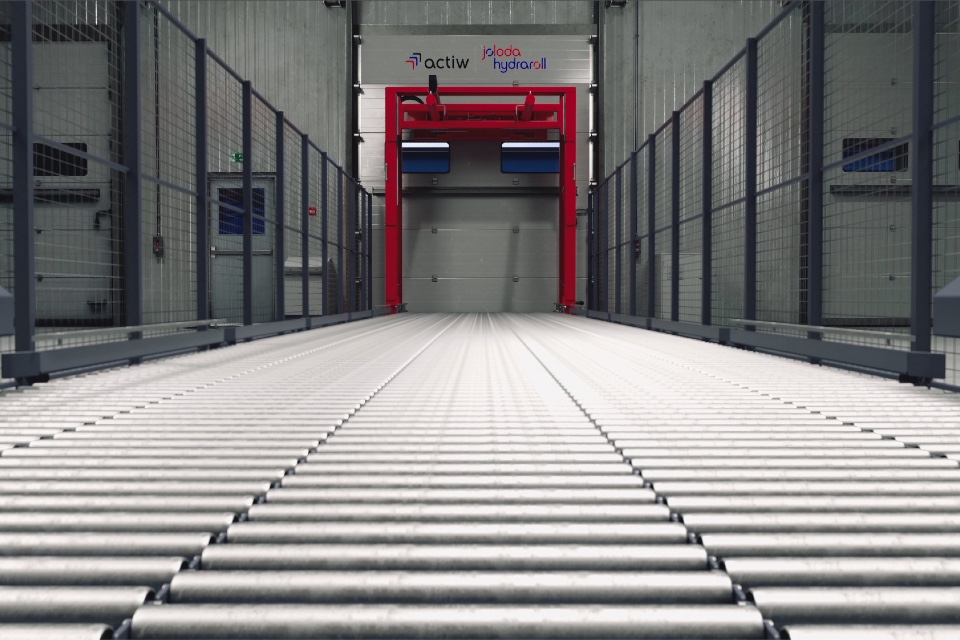In a market boosted by young consumers with a willingness for cross-border spending online the Irish eCommerce market is predicted to grow to be worth a staggering €7bn in 2022.
The latter half of 2021 saw Irish consumers turn in increasing numbers to buying from international retailers.
Yet last year exports from the UK to Ireland dropped by a fifth with nearly one in four British exporters giving up fulfilling online orders citing costly post-Brexit delays. The top exports from the UK to Ireland were medicinal, pharmaceutical and consumer goods.
For the remaining British exporters continuing to meet online customer demand in Ireland there’s a clear distinction between those that are currently surviving and those that are thriving. Irish logistic firm DuTec’s managing director Sean Conway details five areas of adversity for UK exporters and how successful UK exporters have adapted to overcome these issues…
Meeting customer delivery expectations
Before Brexit, Irish online consumers were familiar with a 2–3-day delivery timescale for orders bought and shipped from Britain. Post-Brexit the reality is that it can take up to three or four weeks for a package to arrive. The consequence being that an Irish consumer will choose an alternative supplier if a UK brand cannot meet their delivery expectations.
Successful exporters are reducing the physical distance between product and consumer, bypassing the time-consuming and costly border processes that are now in place. By holding a proportion of stock in Ireland, days of time can be saved, and customer expectations can even be exceeded with expediated delivery now an option. Beat the competition with speedy delivery.
Avoiding nasty surprises
In addition to delays, there have been many instances of Irish consumers discovering they have extra charges to pay when their goods finally arrive from the UK. These charges include VAT, Customs Charges, Handling/Processing Charges, and can be considerable, Often necessitating a trip to the courier’s depot to pay for and pick up their parcel, these nasty surprises reflect badly on the UK sellers.
Post-Brexit Irish customers are now accustomed to checking out the shipping terms to get an understanding of where an item is coming from, how long it will take to arrive, and shipping costs incurred. British exporters have found a two-fold solution. Firstly, they are mitigating the risk of variable shipping costs by using a fulfilment partner In Ireland and secondly they are reassuring online customers by clearly outlining that there are processes in place to avoid extra shipping costs being incurred by customers.
Higher import costs
Custom delays, inspections and import taxes at the UK/EU border have drastically increased post-Brexit and have been further complicated by supply chain pressure caused by Covid. Consider that a pallet inspection into the EU from the UK consists of checks on every SKU and you get an idea of the magnitude of red tape involved, especially with large volume shipment.
These “steps of pain” are being overcome by successful British exporters, partnering with logistics firms knowledgeable and familiar with UK/EU customs processes who can swiftly clear both non-EU and EU bound products on behalf of the exporters.
Handling EU to UK returns
With up to 20% of online goods returned over the 2021 Xmas period many UK exporters are incurring considerable costs attempting to facilitate returns. In this first full year of Brexit this has been somewhat of a baptism of fire for some, as goods have to leave the EU and re-enter the UK which can incur further taxes. In addition, if a product is perishable, such as a beauty product, or if the products are seasonal the window of time open for it to be reprocessed and made ready for re-sale before its best before date or season end can be adversely affected by a delayed return. A recent report in the Guardian disclosed that the cost of a return in the UK costs up to £20. Factor in the added costs in coming back from Ireland and this figure could be even more for UK retailers.
Successful British exporters to Ireland find that a hassle-free returns policy drastically reduces the cost and pain of returning goods, for both the consumer and the retailer. These exporters often use an Irish logistics partner who can receive and process the returns, repurposing goods that can be swiftly re-sold. By holding returned items in Ireland, within the EU, the threat of further import taxation is negated. Non-EU products can be efficiently returned in bulk, further reducing costs.
Decreasing your carbon footprint
Direct shipping goods destined for Irish consumers from point of manufacture directly to Ireland can dramatically reduce your Carbon footprint.
Sustainability-conscious exporters are realising that the number of miles a parcel has to travel can be reduced by 5x by importing into an Irish hub at the point of supply itself. An experienced import partner can tackle the logistical and administrative tasks which when considering high volume shipping can lead to a massive decrease in carbon emissions.







